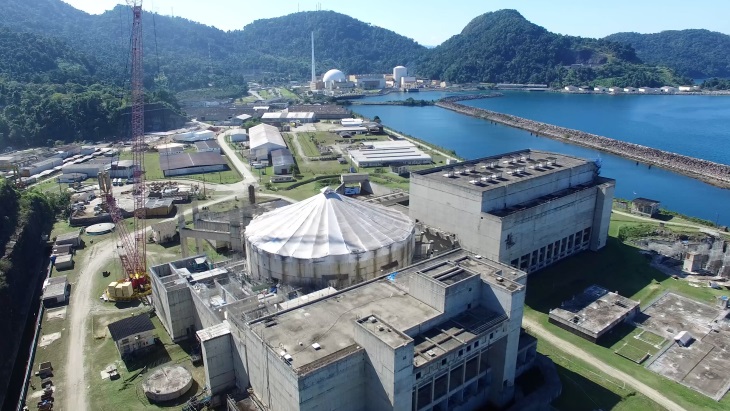Last week the Federal Audit Court (TCU) published an analysis of aspects of the project to complete the nuclear power unit whose construction originally began in the 1980s before being halted.
According to the TCU analysis of tariff calculations, the price charged for its eventual output "will not respect the principle ... that the tariffs charged for public services are reasonable and accessible to the population". It adds that "regardless of potential positive externalities of the enterprise for national nuclear policy, the charges to consumers will be much higher if the construction of Angra 3 continues than if the project is abandoned".
The TCU said that when the National Energy Policy Council (CNPE) makes its choice "it must justify its full decision in detail" and also "consider the costs of eventual abandonment of the work".
The TCU describes itself as "the external control institution of the federal government that supports the National Congress with the mission of overseeing the budget and the financial execution of the country and contributing to the improvement of public administration for the benefit of society".
In response to the TCU statement, Eletronuclear has said that the estimate of the higher cost than other energy generation options was based on what was a preliminary presentation in the past by the Brazilian Development Bank (BNDES) and the actual suggested price of electricity for Angra 3 would not emerge until a full study by BNDES is completed.
"Only after the completion of the independent studies, carried out by BNDES," will it be possible to assess the impacts of the Angra 3 project on the national electrical system. "Eletronuclear informs everyone that it works day in and day out so that operational, financial and construction efficiencies are duly appropriated, always for the benefit of Brazilian consumers for low tariffs. Furthermore, tax aspects may contribute to the fall in the value of the final tariff for the consumer," the company said.
Eletronuclear's statement added "the price of electrical energy produced by Angra 3 will certainly be competitive for a clean, non-polluting (not producing greenhouse gases), safe, reliable, constant" power source. It added that a recent study suggested that for every BRL1 billion (USD194 million) invested in the nuclear generation sector, BRL3.1 billion is generated in the production chain, generating 22,500 jobs in Brazil, 17,500 of which in the State of Rio de Janeiro.
Eletronuclear is currently holding a month-long public consultation on the tender to complete the works at Angra 3.
Brazil has two reactors - Angra 1 and Angra 2 - which generate about 3% of the country’s electricity. Work on the Angra 3 project - to feature a Siemens/KWU 1405 MW pressurised water reactor - began in 1984 but was suspended two years later, before construction began. The scheme was resurrected in 2006, with first concrete in 2010. But, amid a corruption probe into government contracts, construction of the unit was halted for a second time in 2015, when it was 65% complete. It resumed again in November 2022 - at the time of the project’s revitalisation, Eletronuclear’s aim at that time was to start operations by the end of 2026. However, work has again faced interruptions pending agreement with local authorities on "socio-environmental" compensation payments.
Brazil also began a process to identify sites for new nuclear power plants in 2022 - its National Energy Plan to 2050 said the country aims to add 10 GW of nuclear capacity in the next 30 years.















